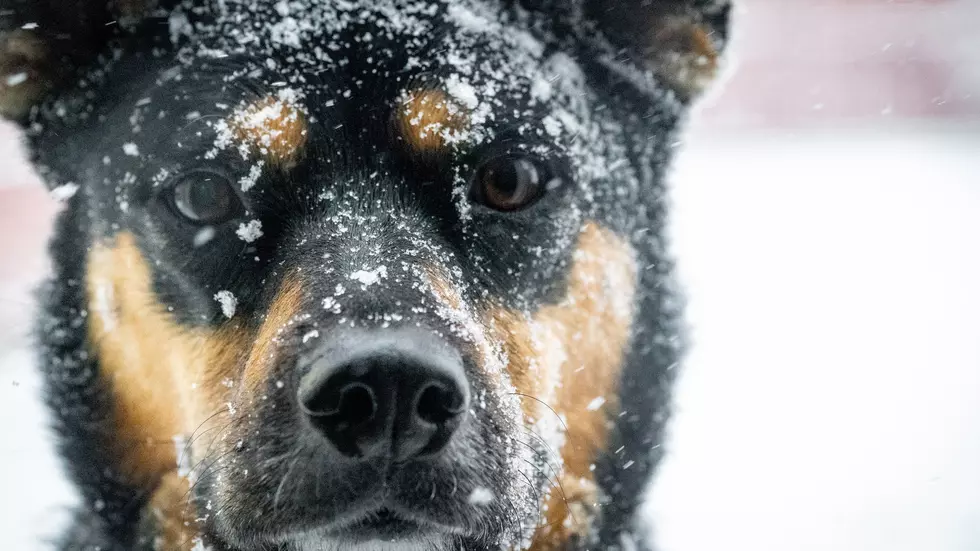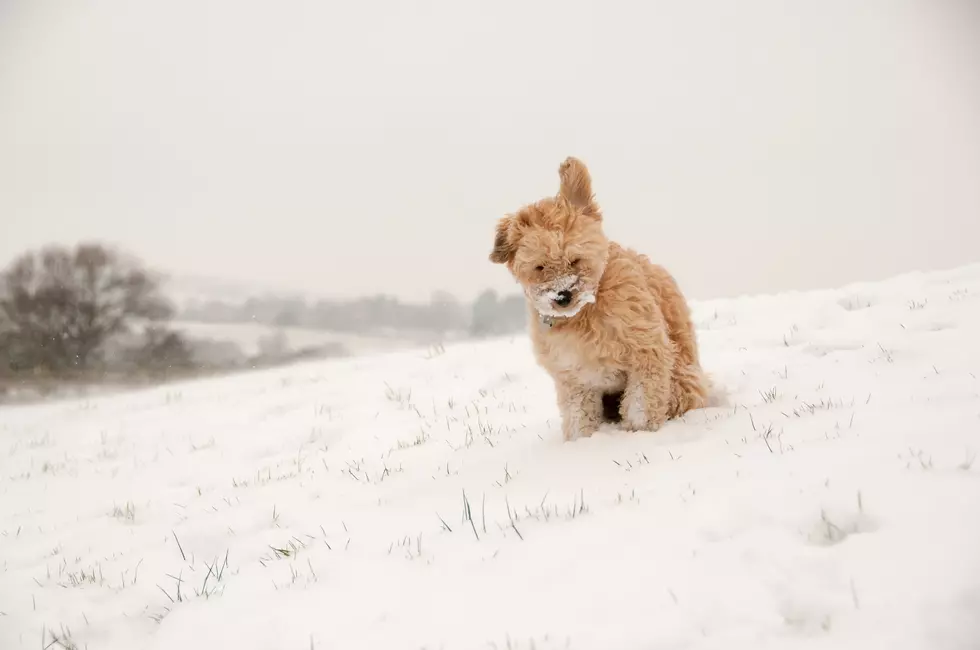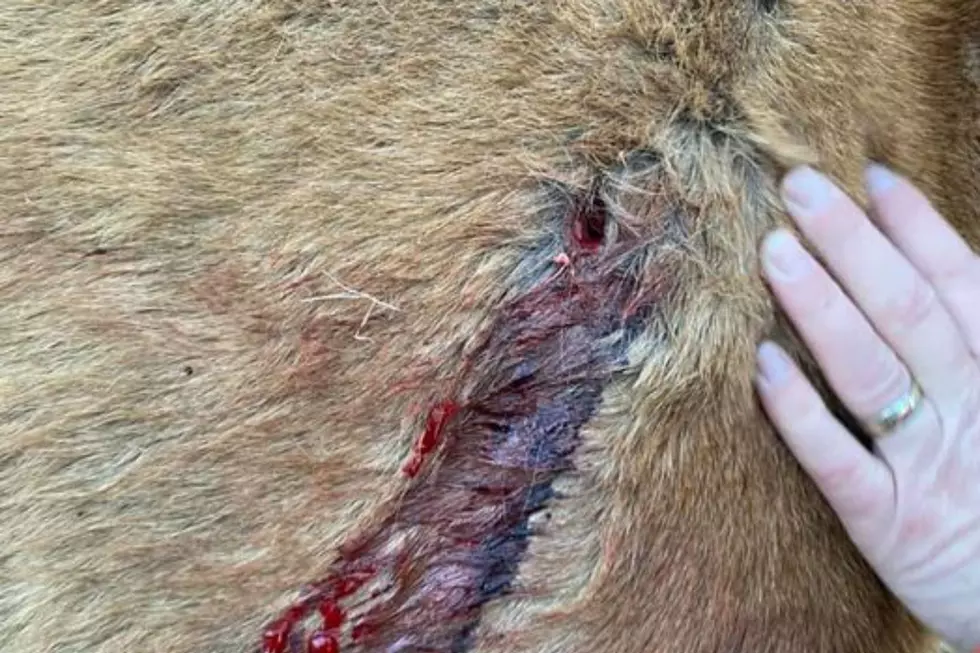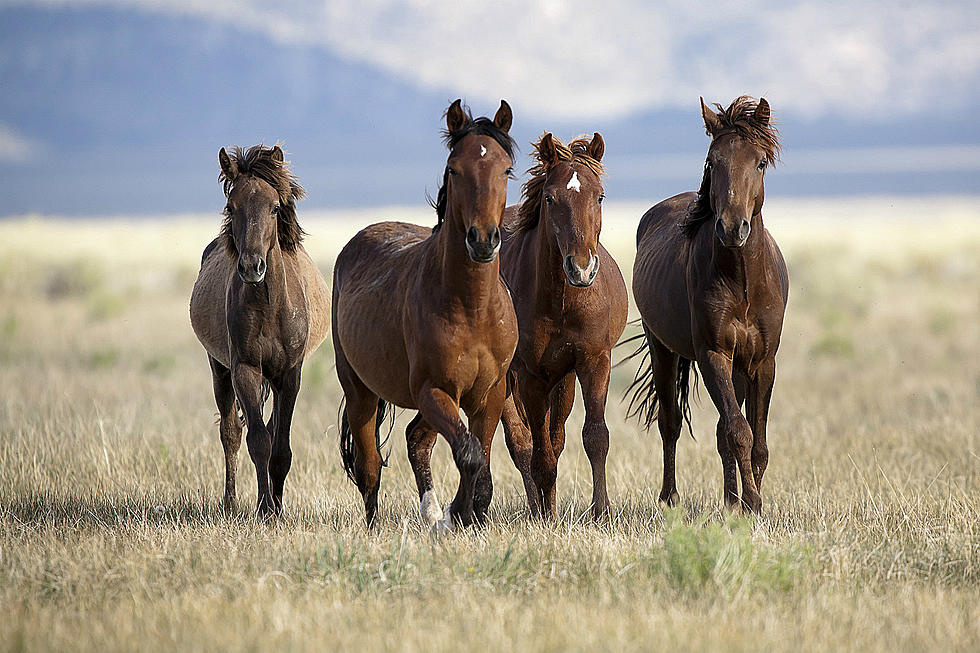
Keep Your Pets Safe in the Wyoming Cold
It's winter in Wyoming and that means cold, wind, and snow. As you do what you gotta do to keep yourself warm, be sure to take extra precautions during winter months to make sure your four-footed family members stay safe and warm as well.
Not only is it the right thing to do, but it is also illegal in Wyoming to leave pets out in the cold.
A person commits cruelty to animals if he has the charge and custody of any animal and unnecessarily fails to provide it with the proper food, drink or protection from the weather, or cruelly abandons the animal, or in the case of immediate, obvious, serious illness or injury, fails to provide the animal with appropriate care.. - Wyoming Statute W. S. 1977 § 6-3-203
When the temps drop, life outside can be dangerous for pets. Here are a few tips to help your pets remain happy and healthy during the frozen times in the Cowboy State.
- Don't leave dogs or cats outdoors when the temperature drops down below freezing. Regardless of the season, short-haired, very young and old dogs, as well as all cats, should never be left outside without supervision. Dogs and cats are safer indoors, except when taken out for exercise. During walks, short-haired dogs may feel more comfortable wearing a sweater.
- No matter what the temperature is, windchill can threaten your pet's life. All pets are sensitive to severe cold and are at risk for frostbite and hypothermia, just like people. Exposed skin on noses, ears and paw pads can quickly freeze and suffer permanent damage.
- A dog or cat is happiest and healthiest when kept indoors. If for some reason your dog is outdoors much of the day, he or she must be protected by a dry, draft-free shelter that is large enough to allow the dog to sit and lie down comfortably but small enough to hold in their body heat. The floor should be raised a few inches off the ground and covered. The house should be turned to face away from the wind, and the doorway should be covered with something waterproof.
- If your pets spend a lot of time outdoors then they need more food in the winter. Keeping warm depletes energy. Also, be sure to routinely check your pet's water dish to make certain the water is fresh and unfrozen. Use plastic food and water bowls rather than metal; when the temperature is low, your pet's tongue can stick and freeze to metal.
- The salt and other chemicals used to melt snow and ice can irritate the pads of your pet's feet. Wipe all paws with a damp towel before your pet licks them and irritates his/her mouth.
- Watch out for antifreeze. Using antifreeze in the winter for your vehicle is essential, but make sure you store it away from your pets because antifreeze is a deadly poison. It has a sweet taste that may attract animals and children. Wipe up spills and store antifreeze (along with all household chemicals) out of reach of pets and children. Coolants and antifreeze made with propylene glycol are less toxic to pets, wildlife and family.
Probably the best prescription for winter's woes is to keep your dog or cat inside with you and your family. The happiest dogs are those who are taken out frequently for walks and exercise but kept inside the rest of the time.
Don't forget about your horses.
Be sure your horses have access to a barn or a three-sided run-in so they can escape the wind and cold.
While not all horses will need to be blanketed, blankets will help horses keep warm and dry, especially if there is any rain or snow. If you’ve body-clipped your horses, keep them blanketed throughout the winter.
Give your horses access to unfrozen water at all times. You can use heated buckets or water heaters/deicers to make sure the water doesn't freeze.
Feed your horses more forage (unlimited amounts, if possible) during extremely cold temperatures. This will help your horses create heat and regulate their body temperatures.
SOURCE: HUMANE SOCIETY

KEEP LOOKING: See What 50 of America's Most 'Pupular' Dog Breeds Look Like as Puppies
More From Laramie Live









